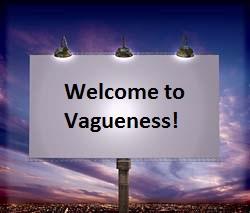General Contracting Starts With a Good Construction Contract

Guest Blogger: Diane Menke, VP/Operations Manager of Myers Constructs, Inc. Diane Menke (left) and Tamara Myers (right) are the co-owners and principals of Myers Constructs, Inc., an award-winning design to build firm serving the greater Philadelphia region. A certified Women Business Enterprise, Myers Constructs is also a member of the U.S. Green Building Council, NARI, and NKBA.
General Contracting Starts With a Good Construction Contract
 Over the years, I have heard from many contractors — some of them with very big companies — about how they handle drafting their business contracts. Many times, these documents consist of a collection of "stuff some guys I know have in their contracts" cobbled together. It doesn't even occur to these business owners that laws vary by state, or that they might need an expert to customize contracts to fit their own business's unique needs. By not having a professional create legal documents that fit a clear sales procedure and overall company goals, they are putting their company at serious risk. I know because we learned the hard way, too.
Over the years, I have heard from many contractors — some of them with very big companies — about how they handle drafting their business contracts. Many times, these documents consist of a collection of "stuff some guys I know have in their contracts" cobbled together. It doesn't even occur to these business owners that laws vary by state, or that they might need an expert to customize contracts to fit their own business's unique needs. By not having a professional create legal documents that fit a clear sales procedure and overall company goals, they are putting their company at serious risk. I know because we learned the hard way, too.
When we first started our business, we used "homemade" and very simple carbon copy contracts that Tamara put together over the many years she was a carpenter working for herself. Basically, it stated: "Seller will do X for Buyer for $Y." Like most carpenters and trades people, Tamara loved working with her hands and helping people. Carpentry was a joyous creative outlet for her. At that time, if a customer didn't pay, Tamara would "make nice" in order to "keep the peace and her good name" and move on to the next project. Lucky for Tamara, most of her customers were good people, the projects were small, and she probably didn't lose as much as she could have.
What motivated us
 In 1998, we incorporated as Myers Constructs, Inc., because we had taken on a huge and complicated renovations project. We knew we needed serious business structures in place to protect us, so in 2001 we asked Dana Priesing, an attorney who is now our office manager, to read our contracts to look for problems. (She had us sign a contract before she did so!) Dana interviewed Tamara to better understand how she sells, and how our customers buy, and then gave us a few recommendations right off the bat:
In 1998, we incorporated as Myers Constructs, Inc., because we had taken on a huge and complicated renovations project. We knew we needed serious business structures in place to protect us, so in 2001 we asked Dana Priesing, an attorney who is now our office manager, to read our contracts to look for problems. (She had us sign a contract before she did so!) Dana interviewed Tamara to better understand how she sells, and how our customers buy, and then gave us a few recommendations right off the bat:
- Don't give away design work. That was a huge lost income stream. It drained endless hours of Tamara's time, and sometimes we didn't even get the project. Dana advised us to bill for it, and she created a contract just for design work. We can now use the same contract if a customer with an architect needs consulting work during the design phase.
- Our income streams should be separated out, and clear and simple contracts should be created for each one. We now have one for fixed price contracts and one for time and materials contracts, which are typically smaller, simpler projects.
- Don't use "softening statements" EVER in contracts. By softening the rules, boundaries and regulations of our agreements, and by being vague about price, payment schedules, and customer expectations, we had unintentionally created confusion. Our customers didn't know what we needed from them in order to do a good job, so Dana created a contract for us that clearly and separately identifies buyer's and seller's responsibilities, rights, and remedies.
Protecting our investments

Our company supports a lot of people. We have invested decades into it, and we are depending on it to help us retire. It deserves great contracts to protect those objectives. And great contracts mean we can sleep soundly at night because we know we are doing what we agreed to do at the right price, and we are protected against any possible issues that may arise.
Liked this guest blog? You might like this one too:
What Happens In Vagueness Stays In Vagueness!






 I know there may be some
I know there may be some 
 There is way too much to learn about accounting and financing to cover or explain in this short blog article. I suppose that is why it is actually a career for some people. That’s why there are accountants, business consultants and financial advisors. For a business owner though, understanding and overseeing the process are the bare minimums. The ultimate success and profitability of your company is typically not left to someone else; it’s the owner’s responsibility. In order to identify what business owners need to do, I find have found it helpful to show my
There is way too much to learn about accounting and financing to cover or explain in this short blog article. I suppose that is why it is actually a career for some people. That’s why there are accountants, business consultants and financial advisors. For a business owner though, understanding and overseeing the process are the bare minimums. The ultimate success and profitability of your company is typically not left to someone else; it’s the owner’s responsibility. In order to identify what business owners need to do, I find have found it helpful to show my 

 I’m sure this story is true for many remodelers. If you’re one of them and you’re tired of never ending sales cycles, having to sell on price, working for people you’d rather say no to and you can’t seem to generate enough volume and or gross profit to have a healthy business; it’s time to decide who you want to target for prospects and start strategically marketing so they can find you and so you can convert them into customers.
I’m sure this story is true for many remodelers. If you’re one of them and you’re tired of never ending sales cycles, having to sell on price, working for people you’d rather say no to and you can’t seem to generate enough volume and or gross profit to have a healthy business; it’s time to decide who you want to target for prospects and start strategically marketing so they can find you and so you can convert them into customers.
 One resource remodelers can take advantage of for help with better targeting is their vendors. Vendors who carry well known product brands know which demographic of customers buy different products based on their quality, benefits and related cost. They also typically get support in this area from the product manufacturers and distributors they do business with. If you establish a relationship with a good vendor who offers marketing help and support, it can be like having a whole team of marketing experts working on helping you find more and better customers. The great part about it is that helping the remodeler helps the vendor, the distributor and the manufacturer all at the same time. When something gets sold everyone one wins!
One resource remodelers can take advantage of for help with better targeting is their vendors. Vendors who carry well known product brands know which demographic of customers buy different products based on their quality, benefits and related cost. They also typically get support in this area from the product manufacturers and distributors they do business with. If you establish a relationship with a good vendor who offers marketing help and support, it can be like having a whole team of marketing experts working on helping you find more and better customers. The great part about it is that helping the remodeler helps the vendor, the distributor and the manufacturer all at the same time. When something gets sold everyone one wins! Ready for the new normal?
Ready for the new normal?



 by what you say, but rather by the intuitive questions you ask.
by what you say, but rather by the intuitive questions you ask. 









